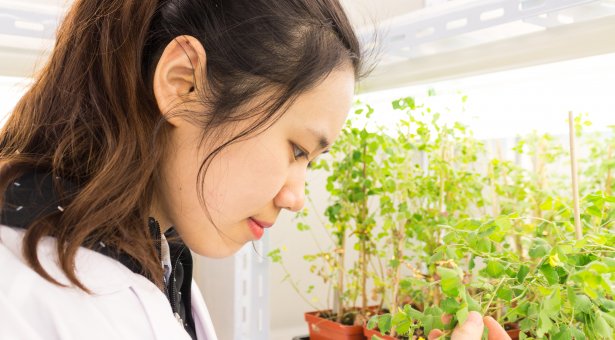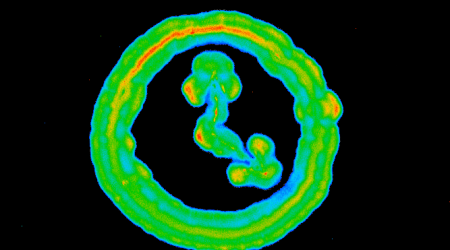Plans for China-UK Centre of Excellence for plant and microbial research

A new centre of excellence for plant and microbial research is planned in China following a joint symposium in Shanghai between researchers from the Chinese Academy of Sciences and the John Innes Centre.
The symposium highlighted shared scientific goals that will drive the step change in agriculture needed to produce food sustainably in the future.
The world population threatens to reach 9 billion by 2050, putting the challenges for plant science firmly in the spotlight.
The John Innes Centr and the CAS Institutes share strength in crop genomics and in understanding how plants and microbes produce natural products.
There are over 100 John Innes Centre alumni with academic positions in China, including three Academicians at CAS. These links have helped support collaboration for over 30 years.
Building on these relations, the John Innes Centre and CAS signed a Memorandum of Understanding in June 2011 to combine their strengths for the public good, especially in the areas of food security, sustainable agriculture and healthy living. This will be achieved through a series of exchanges and by establishing a joint CAS-JIC Centre of Excellence in China.
The John Innes Centre is strategically funded by the Biotechnology and Biological Sciences Research Council (BBSRC), who support UK-China partnerships.
It is envisaged that the Centre of Excellence will run joint research programmes, overseen by CAS and John Innes Centre scientists, focussed on producing new varieties of ‘future-proofed’ wheat and rice, two of the world’s most important crops.
The aim is to improve these cereals through rational design based on research at the John Innes Centre and CAS into their fundamental biology and genetics.
The centre will design crop plants for the future, delivering improved performance and yield while reducing reliance on inputs such as fertilisers and pesticides. It will exploit the potential to produce new natural products using the biodiversity of plants and microbes.
Crop plants may be natural factories of the future, grown to produce pharmaceuticals and plastics. It is hoped that the laboratories will attract the brightest minds to help it meet these challenges.
Ahead of establishing the Centre, a number of exchange visits between the institutes will promote cooperation, including the first CAS-JIC Joint Symposium, recently held in Shanghai.
The symposium was attended by;
- Professor Yongbiao Xue (Director, Institute of Genetics & Developmental Biology, Beijing)
- Professor Chung-Ming Liu (Head, Key Laboratory of Molecular Plant Physiology, Institute of Botany, Beijing)
- Professor Hongwei Xue (Director, Shanghai Institute of Plant Physiology and Ecology)
- 20 Chinese Scientists from CAS institutes and other research institutes and universities
- Professor Dale Sanders, John Innes Centre
- 18 John Innes Centre Project Leaders
Presentations focussed on plant development and interactions with the environment, genomics and gene discovery in crops, plant and bacterial natural products and plant biotic interactions.
Hongwei Xue, Director of the Institute of Plant Physiology and Ecology said: ”The JIC-CAS collaboration will not only benefit the science of both sides, but also complement China and the UK’s positions as world leaders in agricultural sciences ,providing a significant contribution to helping the developing world.”
Yongbiao Xue, Director of the Institute of Genetics and Developmental Biology, said “I am very excited about the immense potential that the CAS-JIC joint research centre will bring in securing the food supply for the world.”
Profs Giles Oldroyd and Dale Sanders from the John Innes Centre also met in Beijing with Professor Jiayang Li, President of the Chinese Academy of Agricultural Sciences and Vice Minister of Agriculture, and Yaping Zhang, Vice President of CAS, to discuss future collaborations and routes for the establishment of a joint CAS-JIC research centre of excellence in China.



